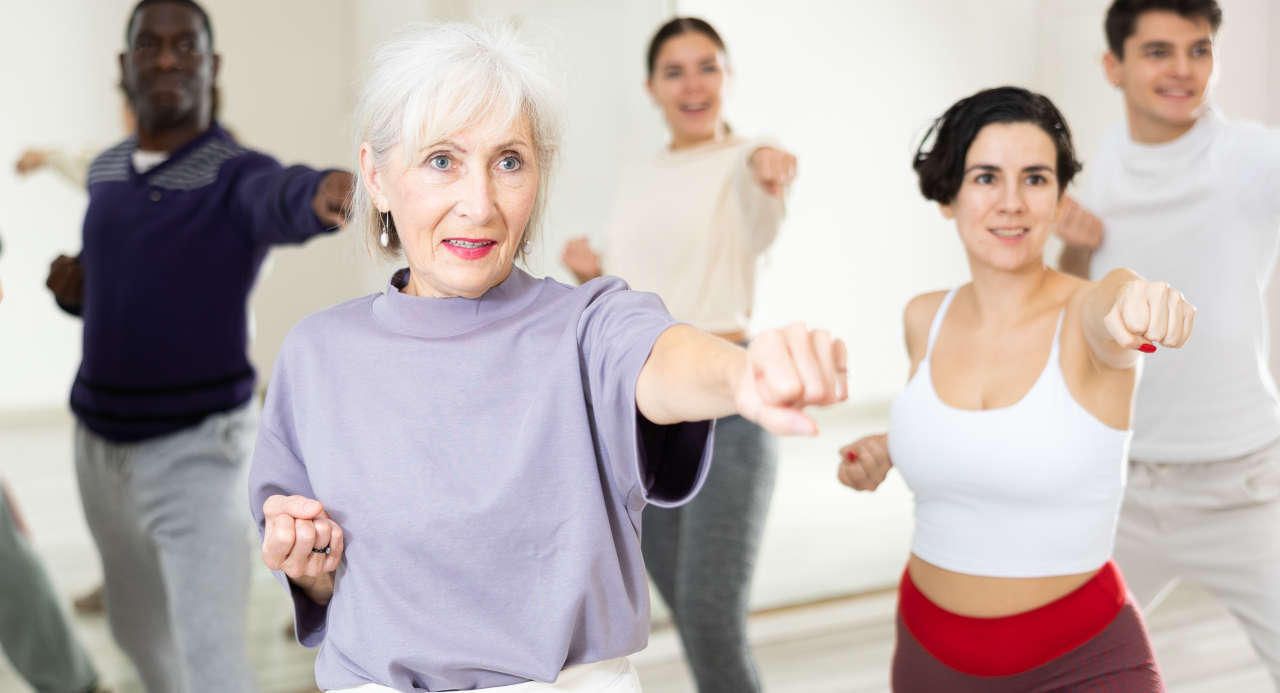Seniors are one of the most vulnerable targets for attackers, thieves, or fraudsters, and to stay safe and protected, learning some self-defense techniques and increasing awareness is crucial.
Your Prescriptions Sorted and Delivered
Robbery, fraud, and burglary are among the top crimes committed against older adults. According to the U.S. Department of Justice, at least 1 out of 10 seniors aged 65 years and older encounter at least one form of abuse each year.
Increasing awareness in seniors about certain self-defense strategies can prevent them from falling prey to attackers or thieves. In this article, we will explore strategies to avoid becoming a target and go over 4 powerful and actionable self-defense tips.
Benefits of Self-Defense for Seniors
Apart from protecting seniors from any damage or loss that attackers or thieves may cause, there are numerous other benefits of self-defense, including the following:
- Self-defense improves confidence in seniors, allows them to be more independent and bold, and encourages them to interact with the world by reducing their fear or anxiety.
- By learning self-defense tips, seniors become more aware and cautious of their surroundings.
- Self-defense awareness teaches seniors not to trust or talk to everyone, especially strangers.
- Self-defense training offers physical and mental health benefits, like improved strength, energy, and cognitive functions, and helps seniors stay in shape.
How You Can Avoid Becoming a Target

Before we move on to the best self-defense tips, it is also important to learn how you can prevent yourself from becoming a target in the first place.
- The foremost thing is to not create situations that may attract crime. This includes things such as counting money at an ATM, wearing expensive jewelry or watches, or carrying costly items like iPhones and expensive handbags.
- It is important to keep your body and head straight when you walk. Also, walk with purpose and confidence. Your eyes should scan the entire surroundings as you take your steps. If you appear weak or frightened and just roam around without a purpose, the chances of being targeted can increase.
- While walking alone, tightly hold your belongings close to your body tightly to prevent easy snatching.
- Keep doors and windows locked when at home, and do not open the door for anyone you don’t know.
- If you have any significant physical health problems, avoid traveling or even walking alone outdoors.
- Carrying self-defense tools, like stun guns, pepper spray, walking sticks, and emergency whistles is another way to prevent certain crimes or abuse. Seniors can scare attackers with these tools and prevent them from snatching valuables or attacking.
4 Self-Defense Tips
Even when you stay cautious and do your best to avoid becoming a target, you may still face situations where you need to practice self-defense. Hence, learning some of the best self-defense practices is crucial. Here are the top 4 self-defense tips and techniques that seniors can utilize when encountering a threat:
MedBox: Never Sort Medications Again
Make Noise
When you face a potential attacker, it can be difficult to verbally make loud noises on your own because of fear or anxiety.
A better option is to carry a loud emergency whistle or alarm in your pocket or attach it to your keychain. When you encounter a threat, you can pretend to take out your valuables, then quickly use the whistle or press the emergency alarm.
Don’t Resist
Always remember, your life is more valuable than any expensive item you own.
If you realize that the attacker is only interested in taking your belongings, don’t resist. If you resist, it might lead to a fight, putting your life at risk.
Losing cash and other items might be a temporary loss, but losing your life or ending up with health problems or disabilities may be long-lasting or permanent.
Target Vulnerable Areas
Despite your best efforts to avoid dangerous situations, you may still end up being attacked. When this happens, and you aren’t sure how to defend yourself, targeting the attacker’s vulnerable areas is another effective way to protect yourself. The most common vulnerable areas that you can target include the eyes, feet, groin (for men), neck, or knees.
For example, you can poke the attacker’s eyes with your fingers, car keys, walking stick, umbrella, or anything else you have. If the attacker is holding your hands, you can stomp their feet or kick them really hard on their knees. In some instances, you may render the attacker unconscious by using these techniques. If that happens, running away quickly before the attacker regains consciousness is important.
Get Martial Arts Training
Martial arts training is a highly effective form of self-defense for seniors willing to learn how to defend themselves physically. This type of training may be more suitable for seniors who possess good physical strength and balance. Below are some of the best martial arts for seniors:
Cane-fu
Cane-fu involves carrying a unique cane or walking stick that has specific features that make it more suitable for self-defense. For example, compared to normal canes, cane-fu or self-defense canes have a thicker shaft and are made of wood or other materials that are slightly heavy.
Cane-fu is not only a self-defense tool but also a physical walking aid for seniors. To utilize it fully, it is good to get some training from certified instructors on how to use your cane as an effective weapon.
Judo
Judo is another effective martial art for self-defense. Judo teaches how to hold, throw, pin, or apply pressure to the arm joints or neck of the attacker. Learning and applying judo techniques is easy as it doesn’t involve excessive punches, kicks, or other types of strikes. So, even if you have physical limitations, judo can be easy to learn.
Wing Chun
Wing Chun is a martial arts and self-defense skill that involves throws and punches. However, this self-defense technique commonly only works for individuals with a good body structure and enhanced physical strength.


